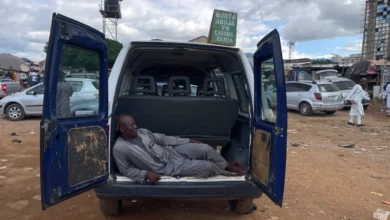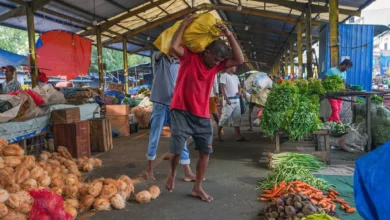In one week, I heard these words from two taxi drivers: “I can either put food on the table or pay for the taxi loan.” It is no longer possible for either of them, and perhaps for thousands of other taxi drivers, to both pay their loan installments and buy food for their children.
The first driver was supportive of President Mohamed Morsy and the second was suspicious of him, but this did not change the fact that they were both in a quandary over their struggle to pay for the installments of their taxi loans.
Millions of people find themselves squeezed into the margins of life, where they must satisfy their basic needs as well as answer daily challenges. Squashed in that tight margin and forced to go through such suffering, these ordinary Egyptians are obliged to strike an impossible balance between what is required and what is possible — between life’s demands and grinding poverty.
The elite in Egypt does not seem to be able to see or understand such suffering. Several former and new officials seem to turn a blind eye to people’s destitution, to the extent that some of them foolishly wonder why protesting workers cannot wait a little until the country “stabilizes” and why professional protests are sweeping the country. Many Egyptians have to choose between paying their financial obligations and feeding their kids. The intense suffering and the daily challenges are causing millions of Egyptians to crack under the pressure.
The 25 January revolution reflected a deep crisis within the regime, accompanied by widespread societal anger. On one hand, conflicts among members of the ruling alliance weakened the regime considerably. And on the other hand, large segments of Egyptian society could no longer tolerate the continuing suffering and long years of frustration.
This led to a continuous state of disobedience that took different forms, including crime, protests and strikes that were staged individually or in groups. In other words, an incongruent political and social system was faced with an entrenched state of widespread disobedience, which paralyzed the ability of the regime to rule the country.
The 25 January revolution was an expression of that deep crisis. The transitional period ended with an attempt to integrate the Muslim Brotherhood into a power-sharing deal. Perhaps that was a solution to the crisis of the ruling alliance: a partial and cautious integration of a widely popular organization in an attempt to prop up the regime in its desperate state.
The Brotherhood played a conclusive role in this regard, for its political exercises and battles were primarily focused on getting hold of more power.
Even though the Brotherhood is in conflict with some institutions of the state, such conflicts are only intended to help the group acquire more ground to enable it to solve problems of the tyrannical state and face societal anger with a strong organization capable of achieving electoral victories. At the same time, the Brothers have a comprehensive ideology that could suppress any serious project for protest or revolution.
The Brotherhood’s inclination to dominate and scramble for more power provides proof that it does not have a genuine project for reform, but rather a project to rule. And it has succeeded in grasping power, particularly after the conditions surrounding the presidential election and its results served their ends.
Morsy’s success, however, is a huge test for the Brotherhood. The Brotherhood is expected to prove that it does not constitute a threat to the ruling alliance and at the same time satisfy the demands of the public, which sees in the group prospects for change. More importantly, it is also required to deal with the deep political and social crises that triggered the revolution in the first place.
Despite their attempts, the Brothers seem unable to handle this historic challenge, for they are neither revolutionaries who are willing to adopt genuine revolutionary measures that would threaten the interests of the bourgeoisie, nor are they real reformists who have a serious project to change the state and address the crisis through transparent gradual procedures and conclusive compromises.
More than 30 days into his presidency, it seems like the Brotherhood’s candidate is jogging in place. The Brotherhood is not adopting any genuine measures for reform or sending across a serious and transparent message of hope. All the ongoing political interactions are insensitive to the demands of the revolution, which makes the explosion of professional and labor protests only logical against such a backdrop.
The Brotherhood has become part of the regime in power, and meanwhile there are no signs the taxi drivers will be able to pay their car installments and provide food to their hungry children.
Akram Ismail is a columnist and a member of the Popular Socialist Alliance Party.
This article was originally published in Egypt Independent's weekly print edition and has been translated by Dina Zafer.




